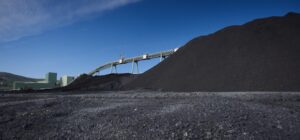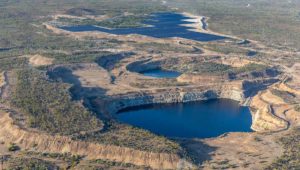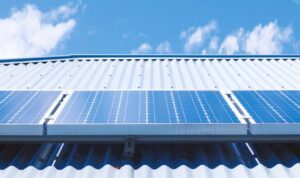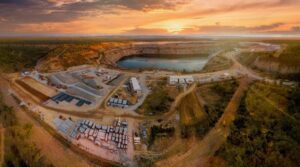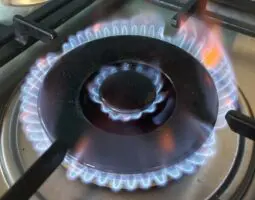The last decade saw British steel magnate Sanjeev Gupta quickly emerge as the saviour of one of Australia’s largest steelworks, and plans for gigawatts of large scale solar to underpin his “green steel” and “green industry” vision here and abroad.
Now, however, that green vision could be stymied as Gupta’s Australian-born financial backer heads towards insolvency.
Gupta has built a substantial global empire of steel and aluminium manufacturing, as well as a growing portfolio of green energy projects as part of a substantial shift to low emissions manufacturing, including a $1 billion plan to build renewable energy facilities in Australia to power the company’s steelmaking operations.
While Gupta’s investments into green steel production have been fruitful and widely welcomed by governments and local communities alike for injecting much-needed funds into ailing industries, it is Gupta’s Australian lender that has emerged as a source concern.
Much of the expansion of Gupta’s industrial empire has been funded by investments and loans from financier Greensill, founded by Queensland-born Lex Greensill. But the financier’s operations are rapidly unravelling and spiralling towards insolvency.
Greensill has specialised in supply chain finance, primarily operating out of Europe and has brought on former UK prime minister David Cameron as an adviser. Pre-covid, Greensill emerged as a leading business loan provider, particularly in the United Kingdom, catapulting Lex Greensill into the ranks of the finance industry’s billionaires.
Greensill specialises in an unconventional form of lending, providing companies with loans that allow them to pay debts owed to suppliers early, with Greensill recouping the loans from borrowers at a later date.
Greensill ran into problems due to the Covid-19 pandemic and has seen its funds frozen by its own banker Credit Suisse after Greensill revealed it had no insurance coverage for the company’s substantial portfolio of loans, and bankers stepped in after losing confidence in Greensill’s ability to manage the debt it has provided.
It is understood that Gupta has borrowed around £4 billion (A$7.2 billion) to finance the expansion of the GFG Alliance, around three-quarters of which has been loaned by Greensill.
While there are no suggestions that a potential collapse of Greensill has had any bearing on the financial performance of the GFG Alliance, a collapse would see Gupta lose a substantial financial backer and may force the steel giant to deal with Greensill administrators, and seek finance elsewhere, possibly on different terms.
Early speculation suggests that Greensill may look to offload some of its assets, including selling the rights to the loans it has provided, to help salvage the ailing investment fund. This could see loans to Gupta’s GFG Alliance sold off to a range of other lenders, and it has been reported that the GFG Alliance has stopped making payments on loans owed to Greensill as it awaits confirmation of the lender’s likely future.
Bloomberg reports that Greensill is in negotiations with an investment consortium of Athene Holding and Apollo Global Management to buy out the company, and Gupta’s GFG Alliance is by no means the only company caught up in the collapse, with Australian telecommunications giant Telstra, construction firm Cimic and the Australian Rail Track Corporation all exposed to a potential Greensill collapse.
In response to the developments at Greensill, several governments have written to the GFG alliance to seek a reassurance of its ongoing financial sustainability, including the Spanish government and the South Australian small business commissioner, but it is understood that GFG’s operation has benefited from a recent surge in metals prices, and has been operating with a strong level of profitability.
A spokesperson for the GFG Alliance said that it was effectively business as usual for the company in Australia, and the GFG Alliance would be looking to identify new providers of funding.
“Our operations are running as normal and our core businesses continue to benefit from strong market conditions generating robust sales and cash flows,” the GFG Alliance spokesperson said.
“Our operational efficiency programme has improved profitability and we are making progress in our discussions with financial institutions that can help diversify our funding. We are keeping our employees up to date and will provide further updates as we deliver our plans.”
The collapse of Greensill could see Gupta both have to deal with a brand new set of lenders and lose an otherwise steady lender that has underwritten the expansion of the GFG Alliance.
Gupta’s GFG Alliance made its first major entry into the Australian market through the acquisition of the ailing Whyalla steelworks in South Australia in 2017, buying out the OneSteel brand and incorporating it into GFG’s Liberty Steel subsidiary. Gupta rescued the steelworks from the collapse of its previous owner Arrium, pledging to revive the steelmaker and invest in supplies of green energy.
Through the GFG alliance’s renewable energy arm Simec Energy, the company pledged to invest up to $1 billion in local renewable energy projects and is currently developing the 280MW Cultana Solar Farm and the 100MW/100MWh Playford Big Battery in the Whyalla region, with each expected to supply power to the Whyalla steelworks.
The company signed a power purchase agreement with Neoen to purchase power generated at the recently completed 128MW Numurkah Solar Farm in Victoria, and the company also wants to build the 220MW Middleback Ranges pumped hydro energy storage project in South Australia, which was shortlisted under the Morrison government’s Underwriting New Generation Investments program.
All projects are expected to proceed as normal.
Simec had also entered into a partnership with the Ross Garnaut backed Zen Energy, aligning the two venture’s visions for investing in an expanding Australian solar industry before the two companies were effectively demerged in 2020.


